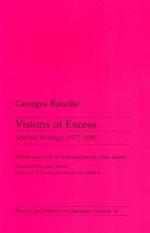
|
| Name: _________________________ | Period: ___________________ |
This quiz consists of 5 multiple choice and 5 short answer questions through Section II (1932-1935).
Multiple Choice Questions
1. Whom does Bataille contrast to the sovereign in "Psychological Structure of Fascism"?
(a) The aristocrats.
(b) The ignoble workers.
(c) The middle class merchant.
(d) The Jews.
2. What was the "Acephale" group's primary purpose?
(a) To recreate the myth of God.
(b) To kill God.
(c) To annihilate the idea of God.
(d) To come into contact with God in men.
3. What characterizes man in "The Eye"?
(a) Longing for sacrilege.
(b) Desire for violence and violation.
(c) Horror of eyes and insects.
(d) Longing for purity.
4. What does Bataille say conspicuous consumption was used for?
(a) Attacking the inequalities in the economy.
(b) Devaluing the trappings of wealth.
(c) Affirming the position of the rich.
(d) Destroying the foundation of wealth.
5. What was the essay "Sacrifices" used as?
(a) As a preface.
(b) A personal essay.
(c) A review.
(d) A criticism.
Short Answer Questions
1. Under whom does fascism unite society, in Bataille's account?
2. What kind of eye does Victor Hugo describe in a poem Bataille cites?
3. What principles does Bataille say men associate with the feet in "The Big Toe"?
4. What do volcanoes serve as, in "The Solar Anus"?
5. What did Engels work for eight years to develop, but ultimately disavow?
|
This section contains 265 words (approx. 1 page at 300 words per page) |

|




